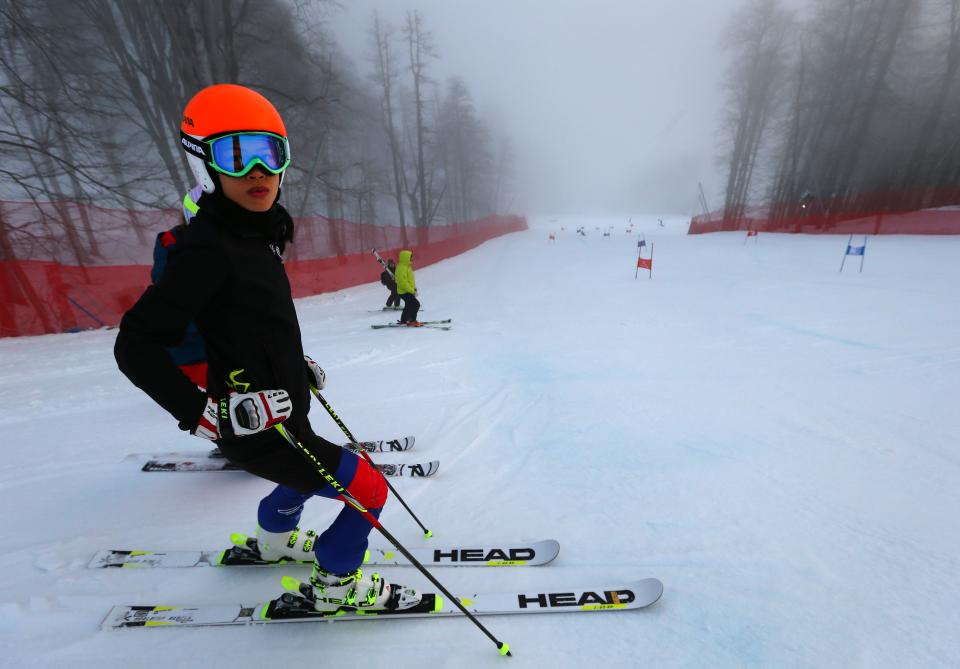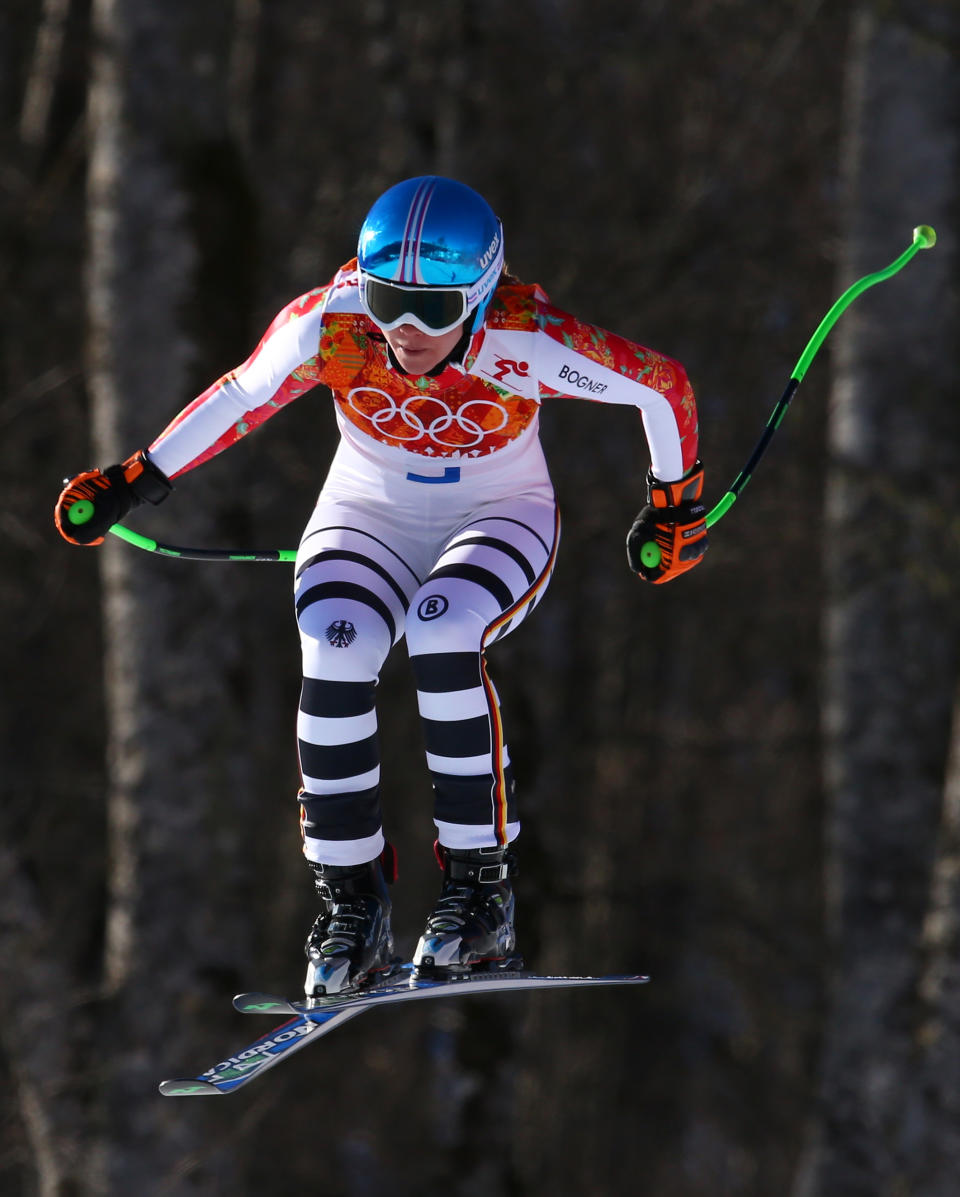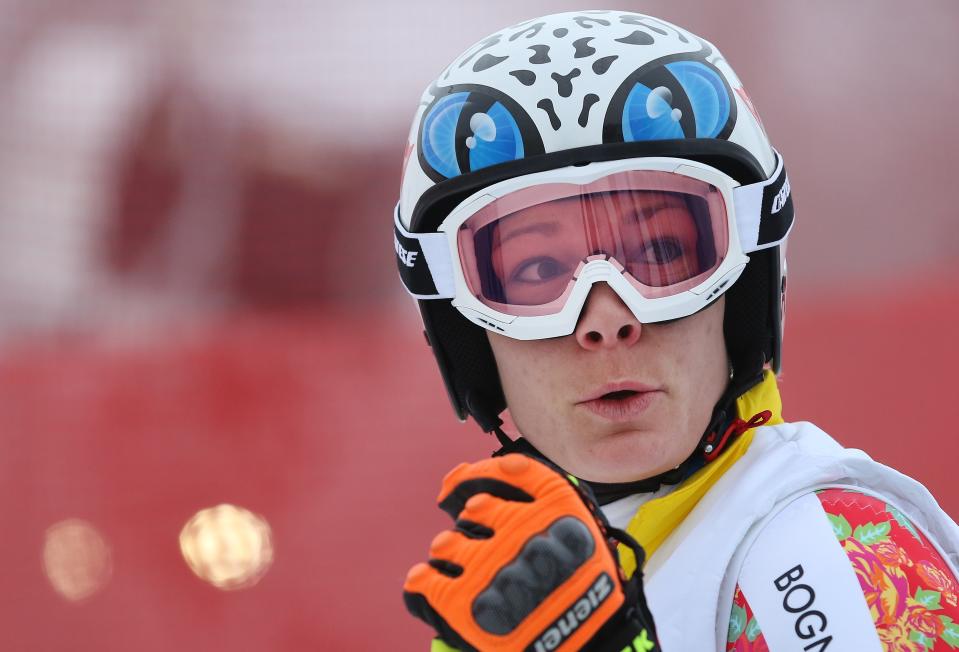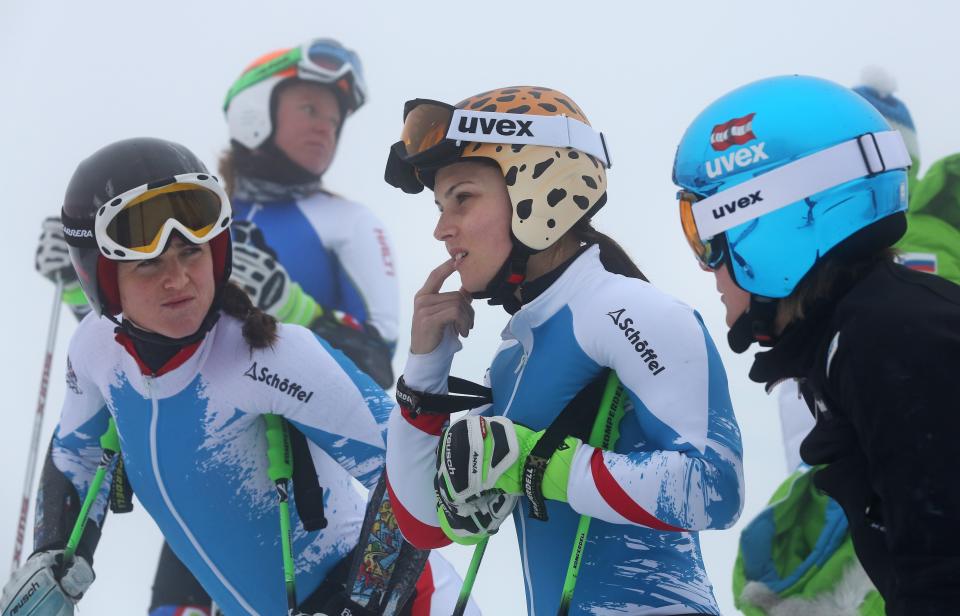Women's GS opens 2nd phase of Olympic Alpine races
KRASNAYA POLYANA, Russia (AP) — Time for a change of pace on the Olympic Alpine courses, starting with the women's giant slalom on Tuesday.
After six events with the emphasis mostly on pure speed and bright sunshine, the technical gate-racing specialists take center stage this week with fog and rain forecast.
So do smaller nations with little or no Alpine tradition whose top skiers are capable of qualifying for the safer, slower events.
Look out for racer No. 87 on Tuesday — Vanessa Vanakorn of Thailand, better known as classical-pop violinist Vanessa-Mae.
SWEDISH SECRET: Jessica Lindell-Vikarby and Maria Pietilae-Holmner stand 1-2 in the World Cup giant slalom standings but are not getting too much attention.
"Nope," Pietilae-Holmner said. "No one is used to having two Swedish girls up there. So maybe that's why. But it's really cool to have Nos. 1 and 2 in the same team."
With the course flatter than most GS races, Lindell-Vikarby is picking Austria's Anna Fenninger, the super-G gold medalist, as the favorite.
"She's been (racing) and she's good in the flats and on the terrain," Lindell-Vikarby said.
DOUBLE DUTY: The race could stretch into a second day, as it did at the 2010 Vancouver Olympics.
Fog which shrouded the course Monday is forecast to persist, with rain and snow expected to start falling in the morning.
With 90 racers — 41 more than Saturday's super-G — the rules require that everybody starts on the same day.
The second run is due from 1 p.m. though it can be held over to a later day.
Four years ago, fog blanketed the Whistler Mountain course at lunchtime and racing resumed the following morning.
"We'll handle it the same way we handled it in (Vancouver)," race referee Atle Skaardal told the Associated Press on Monday.
VICTOR VIKTORIA: Olympic champion Viktoria Rebensburg was just 20 when scoring her first career victory in that two-day race.
Ten World Cup wins later, the German is an established star though her most recent success was a super-G in January 2013.
Rebensburg's Olympic preparation was affected by bronchitis which sidelined her in December and January. So far, she placed 15th in downhill and ninth in super-G.
Though a second Olympic title would not be a shock, Rebensburg seems an outside shot to match Italy's Deborah Compagnoni (1994 and '98) as a repeat GS winner.
FRENCH BLUES: France is struggling in Olympic Alpine races, and Anemone Marmottan starts the giant slalom as its best hope for a first top-10 finish.
Tessa Worley of France is actually world champion in GS, but she tore her right ACL crashing in slalom in December.
In fact, France has failed to finish any women's Olympic race, with only Marie Marchand-Arvier entering downhill and super-G.
"It's the second time going out in the run and then talk to the journalists," Marchand-Arvier said. "It's not a nice week."
FELIX TEST: Felix Neureuther is in a fog of uncertainty before the men's GS on Wednesday.
Germany's best men's Alpine medal hope injured his neck crashing his car last Friday, and struggled in training on Monday.
He will decide after practice runs on Tuesday whether to start in GS. The men have a scheduled one-hour session on the race hill if the weather allows the 08.30 a.m. start.
Neureuther's top priority is the slalom on Saturday, though he won a classic World Cup GS last month at Adelboden, Switzerland.





